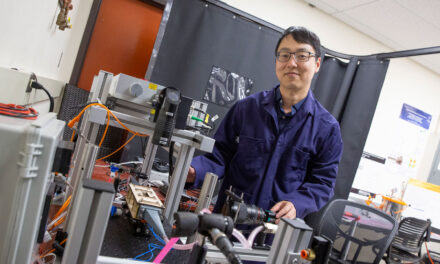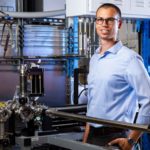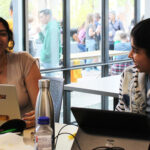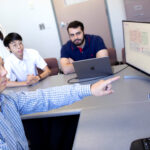
Research internship boosts engineering student’s medical career hopes
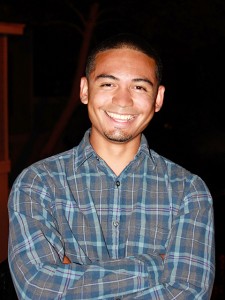
Earning a highly sought-after internship has enabled ASU biomedical engineering graduate student Juan Laitano to do research he expects will help open the door to medical school.
Posted September 4, 2013
Juan Laitano is beginning the fall semester with a good jump on the research he will do as part of his pursuit of a master’s degree in biomedical engineering.
His performance at Arizona State University while earning his undergraduate degree in the field earlier this year led to him to become the first recipient of the Flinn Scholar Summer Internship award.
The Flinn Foundation supports the advancement of biosciences in Arizona, in part through the Flinn Scholars Program to help students prepare for careers in health professions.
Winning the internship award enabled Laitano to spend the summer collaborating with researchers at the Arizona Center on Aging and the Interdisciplinary Consortium on Advanced Motion Performance (iCAMP) at the University of Arizona College of Medicine. He worked under the mentorship of professors Jane Mohler and Bjian Najafi.
Laitano was prepared for his internship duties by more than a year of research performed in the Neural Control of Movement Laboratory directed by professor Marco Santello, who is also director of the School of Biological and Health Systems Engineering, one of ASU’s Ira A. Fulton Schools of Engineering.
During the summer internship, Laitano participated in a project to delineate the biological basis for considering the debilitating physical frailty prevalent among the elderly as a distinct clinical syndrome.
The study aimed to biometrically identify the physical characteristics by which health professionals could gauge whether people were in non-frail, pre-frail or frail condition.
Beyond that, the goal of the project is to improve diagnosis of the syndrome and devise appropriate treatments for each of the three conditions.
He will continue on this research path at ASU in the hope it will gain him entrance into medical school after earning his graduate degree.
Laitano wants to specialize in the emerging area of precision medicine. “Instead of medicine applied generally, it is medicine tailored to each patient’s specific characteristics,” he explains.
“It’s not the development of unique treatments or drugs for each patient, but a more precise identification of patients who are susceptible to certain diseases, how they will benefit or not from various medical interventions and how diseases will likely progress in them, all in accordance with their particular situation and characteristics,” he says.
Laitano’s own path to higher education demonstrates his drive to follow his passion.
Born and raised in Honduras, he came to Phoenix with his family only seven years ago, after the family had obtained permanent residency status, and immediately set out to get more schooling.
He spent two years taking classes at Estrella Mountain Community College and Glendale Community College near Phoenix to prepare for university-level studies.
After deciding on career path in bioengineering and medicine, and researching the best places available to pursue his goal, he concluded that the biomedical engineering program at ASU “was pretty good.”
In 2009 he transferred to ASU, “and I certainly have not been disappointed,” he says.
Media Contact
Joe Kullman, [email protected]
(480) 965-8122
Ira A. Fulton Schools of Engineering



